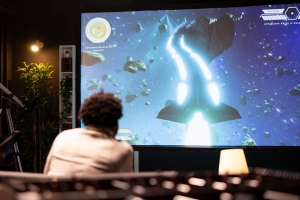Losing someone you love in a car accident is a kind of heartbreak that leaves no room for preparation. One moment, they were part of your everyday life, and the next, everything changed. There is grief. There is disbelief. And there is a weight you carry as life demands decisions before your heart has even caught up.
That first week can feel like a blur. You move through the hours doing what has to be done, all while trying to breathe through the ache. The shock doesn't shield you from the paperwork, the calls, and the endless questions. Many families experience the burden that follows the death of a spouse at full force—emotionally, financially, and in ways no one ever explains until you live it.
Here are some of the immediate steps you can take after losing your loved one in a car accident.
Call 911 and Let Authorities Document the Scene
Once you become aware of the crash, make sure law enforcement has been contacted. If you were not at the scene, you can request a copy of the accident report from the police department later. That report matters. It becomes part of any claim or case that follows. Medical responders will handle immediate care, and their documentation will also be essential.
Let Your Closest People In
Let someone close to you know what happened. It is hard to speak the words out loud, but support from the people who care about you will be one of the only things that will keep you strong. It can feel strange to share the news that breaks someone else's heart, too. Do it anyway.
You need help, and that help starts with letting someone in. The main objective here is to garner emotional support. In the immediate aftermath of an accident, your closest people will be the ones who will be by your side through all the tribulations.
Focus on the Immediate Practical Tasks
Even while grieving, there are things that need to be done. Contact a funeral home to begin making arrangements. Request several certified copies of the death certificate since you will need them for banks, insurance policies, and benefits. Notify your loved one's employer.
If they had life insurance or any work-related coverage, those departments can walk you through the next steps. These tasks feel heavy and cold. They often come with paperwork and phone calls you are too tired to make. Ask someone to sit with you while you do them. You should not have to carry the practical and the emotional weight alone.
Talk to a Personal Injury Lawyer
You do not have to know the law to know something was taken from you. A personal injury lawyer can help determine if negligence played a role in the crash. They can help you seek compensation for funeral costs, lost wages, medical bills, and emotional pain. They carry the legal burden so you can begin to focus on healing.
This is not about blame. It is about being able to move forward with the support and resources you need. The attorney you choose should understand the personal nature of loss and treat you with respect, not pressure.
Get Emotional Support from People You Trust
There is no right way to grieve. You may feel angry, numb, deeply sad, or all of these things at once. It helps to speak with someone trained in grief counseling or to join a group where others are experiencing something similar.
Even if you do not feel ready to talk, being in the company of people who understand can make a difference. Grief is a long road. But you do not have to walk it alone. Consulting a lawyer is the best way to receive compensation and bring the at-fault party to justice.






